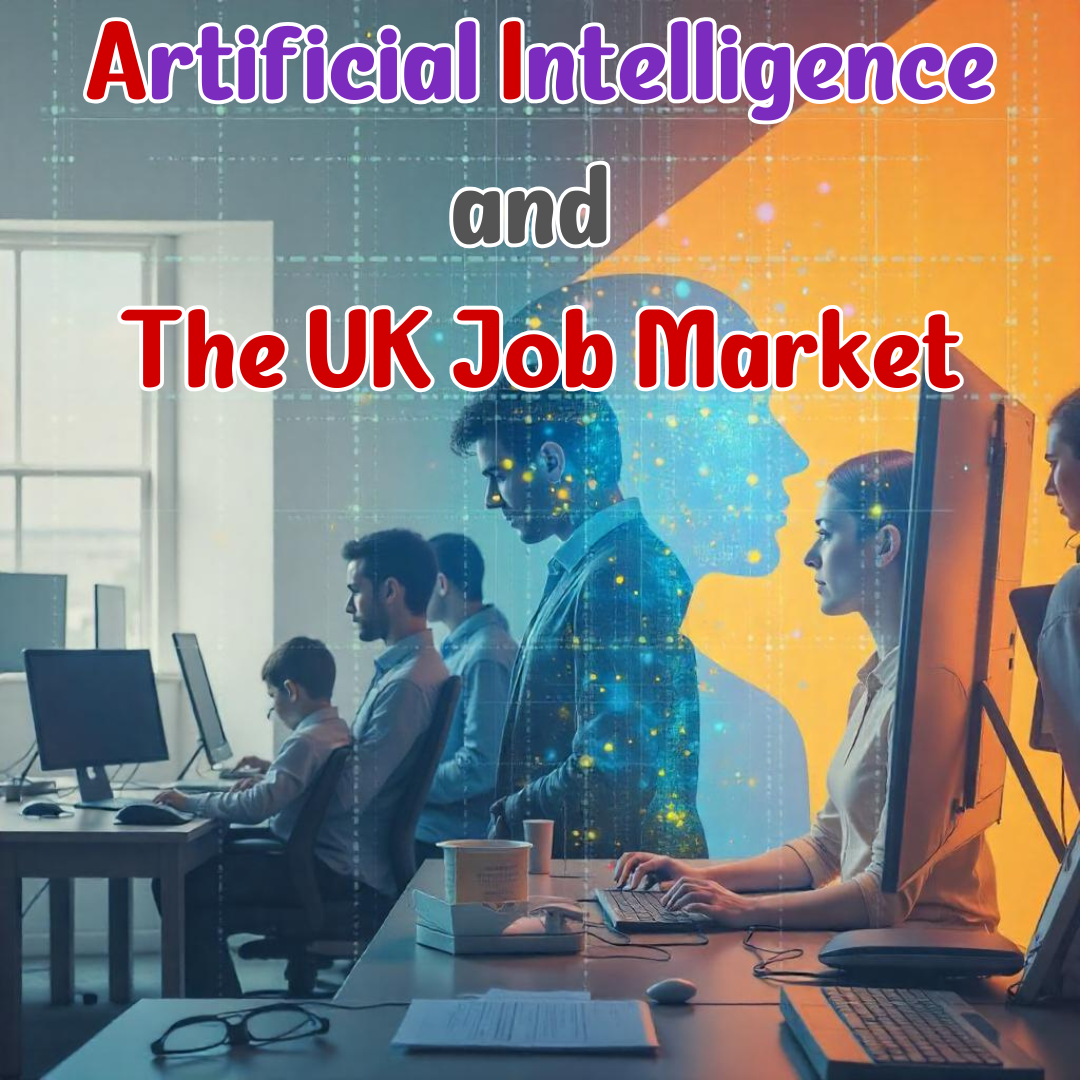Artificial intelligence has quickly moved from sci-fi fantasy to a daily reality. From chatbots handling customer questions to complex systems analysing data in seconds, AI is reshaping how we work. But how exactly is it changing the job scene in the UK? And what should both employers and job seekers do to stay ahead?
Let’s explore how AI is shaking up hiring trends, what jobs are fading, and which new roles are taking their place.
Is AI Already Affecting Job Openings in the UK?
Yes, and in more ways than one. Many UK employers are rethinking who they need to hire. Roles involving repetitive tasks are seeing fewer job postings. Instead of filling such positions, companies are choosing to automate those duties using AI tools. Think data entry, call handling, or form processing, machines can now do these faster and often more accurately.
What industries are leading the way?
Financial services, retail, and marketing are already deeply integrating AI systems. Whether it’s a virtual assistant in a bank or recommendation engines for online shopping, these sectors are investing heavily in intelligent technology to streamline operations and save costs.
- Fewer job ads in admin, basic IT, and customer service roles.
- Recruiters are reporting a noticeable drop in hiring for routine-based positions.
- Larger firms are adopting AI quicker, speeding up the shift.
According to recent reports, job listings in areas most likely to be automated are dropping faster than others. And that’s not just a fluke, it’s a growing trend.
Which Roles Are Disappearing, And Which Are Emerging?
So, what jobs are most at risk?
Jobs that involve predictable, repetitive tasks are in the danger zone. If a task follows a clear set of rules, chances are, AI can do it, and do it well.
- Administrative Assistants
- Data Entry Clerks
- Customer Support Representatives
- Paralegals and Documentation Specialists
These roles often rely on pattern recognition, form-filling, or responding to FAQs, all things modern AI is trained to handle efficiently.
Which jobs are growing because of AI?
The rise of AI isn’t just cutting jobs, it’s creating new ones. Roles aimed at building, integrating, and fine-tuning AI systems are in high demand.
- AI Specialists and Data Scientists – to develop and manage AI models.
- Tech Integration Experts – who help companies adopt and adapt AI tools.
- Change Managers – to guide teams as workflows shift.
- Creative Roles – in marketing, branding, and content, where the human touch still wins.
Who’s hiring for these new skills? From tech firms to traditional banks, organisations across sectors are actively seeking people who can work alongside AI, not just program it, but use it wisely.
How Are People and Employers Adapting?
Thankfully, it’s not all about losing jobs; it’s about evolving with them.
What are businesses doing to prepare their teams?
Many UK companies are investing in training programmes to equip staff with the needed skills. From digital basics to advanced data analysis, professional development is becoming a top priority. For instance, some high-street banks have started retraining frontline staff to team up with AI tools in customer service roles.
Are there government programmes supporting this shift?
Absolutely. The UK government has boosted its support for digital skill development, including expanded Digital Skills Bootcamps. These now include focused tracks on AI, data literacy, and even ethics in tech. These bootcamps are a helpful stepping stone for career switchers and recent graduates looking to get ahead in a changing market.
What’s happening in the real world?
Let’s take a quick example: A London-based marketing agency recently started offering internal courses on AI writing tools like Jasper and ChatGPT. They’re encouraging their copywriters not to fear the tech but to master it, saving time, improving content quality, and helping clients get better results.
What’s New in the UK Labour Market?
There have been several important updates in 2023 that show how fast this transformation is happening.
- AI adoption is accelerating – Over 15% of large UK companies report having implemented generative AI tools.
- Tech talent shortages – There’s high demand for professionals skilled in data science, security, and AI ethics.
- Hybrid job roles – Job postings increasingly ask for people who can “work with AI” or “improve automation processes.”
- Public reskilling initiatives – Government training schemes are helping thousands transition into tech-adjacent careers.
Where can job seekers find these growth opportunities?
Many online platforms now offer short, flexible courses in AI basics, data analysis, and digital productivity. Websites like FutureLearn, Coursera, and the UK Government’s National Careers Service are great places to start.
Practical Tips for Navigating an AI-Driven Workplace
- Stay curious: Keep tabs on what’s happening in your field. How is AI being used? Is it solving problems or creating new ones?
- Keep learning: Online courses (even free ones) can refresh your skills or introduce you to entirely new ones.
- Lean into your strengths: Human creativity, empathy, and critical thinking are still in high demand.
- Use AI as a tool, not a threat: Instead of resisting change, learn how these technologies can make your job easier and more interesting.
Think of it like using a calculator; it doesn’t replace your brain, it helps you use it more efficiently.
Looking Ahead
The AI revolution is underway, and it’s not slowing down. While some jobs may disappear or evolve dramatically, new opportunities continue to pop up in areas that require a balance of tech understanding and human intelligence.
When is the right time to adapt? The answer is now. Whether you’re just starting out or decades into a career, adapting to AI isn’t just wise, it’s essential.
Who wins in this new landscape? The people who stay flexible, continue learning, and find ways to work smarter alongside machines.
Ready to level up? Explore the latest AI and data-related courses through trusted platforms and begin building a future-proof career today!




